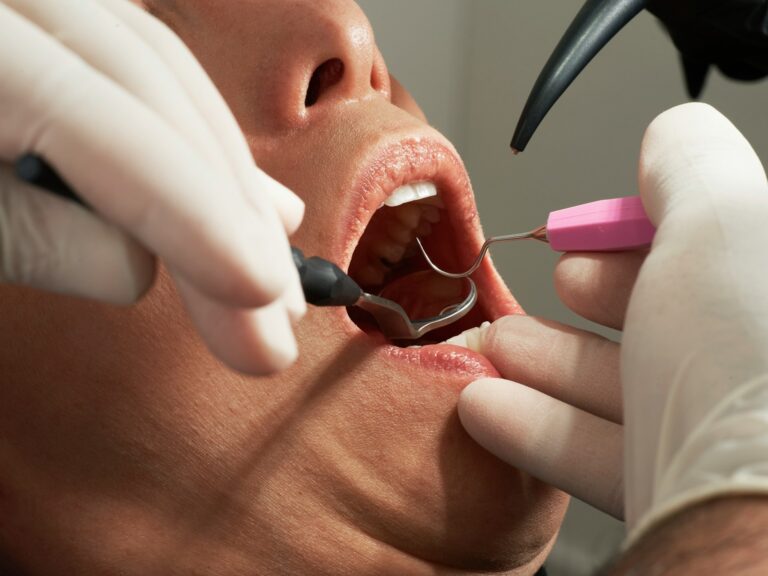The sound of the drill. The bright overhead lights. The anticipation of discomfort. For millions of people, these elements combine to create an overwhelming sense of dread about dental visits.
If you find yourself postponing appointments or feeling anxious just thinking about your next cleaning, you’re not alone.
Dental anxiety affects approximately 36% of the population, with another 12% experiencing extreme dental phobia. This fear often stems from past experiences, fear of pain, or simply feeling vulnerable in the dental chair.
The good news? Modern dentistry has evolved dramatically, and there are proven strategies to help you overcome these fears.
Understanding your anxiety is the first step toward conquering it. When you recognize that your feelings are valid and shared by many others, you can begin taking actionable steps toward achieving patient comfort during dental procedures.
This comprehensive guide will walk you through practical techniques and insights that can transform your dental experience from stressful to manageable.
Understanding the Root of Dental Anxiety
Common Triggers and Their Origins
Dental anxiety rarely appears without reason. Many patients trace their fears back to childhood experiences or stories they’ve heard from others.
Past traumatic dental procedures, even decades old, can create lasting impressions that affect current attitudes toward dental care.
The fear of pain remains the most significant concern for anxious patients. Despite advances in pain-free dentistry techniques, many people still associate dental work with discomfort.
This misconception often prevents individuals from seeking necessary care, potentially leading to more complex problems that require extensive treatment.
Physical and Emotional Responses
Dental anxiety manifests differently in each person. Some experience rapid heartbeat, sweating, or nausea when approaching the dental office.
Others may have trouble sleeping the night before an appointment or feel overwhelmed by intrusive thoughts about potential procedures.
These responses are your body’s natural fight-or-flight reaction to perceived danger. Recognizing these symptoms as normal anxiety responses rather than rational fears can help you begin addressing them effectively.
Preparing Yourself Mentally Before Your Visit
Visualization and Relaxation Techniques
Mental preparation plays a crucial role in managing dental anxiety. Start practicing relaxation techniques several days before your appointment.
Deep breathing exercises can be particularly effective—inhale slowly for four counts, hold for four counts, then exhale for six counts. Progressive muscle relaxation involves tensing and then releasing different muscle groups throughout your body.
Begin with your toes and work your way up to your head, spending 10-15 seconds on each muscle group. This technique helps reduce overall body tension and promotes a sense of calm.
Setting Realistic Expectations
Research your upcoming procedure thoroughly, but stick to reputable sources like the website of your dentist or established dental organizations. Understanding what will happen during your visit removes the fear of the unknown while avoiding misinformation that might increase anxiety.
Create a list of questions for your dental team. Knowing you’ll have opportunities to discuss your concerns can provide significant peace of mind. Most dental professionals appreciate patients who come prepared with thoughtful questions about their care.
Communication Strategies with Your Dental Team
Building Trust Through Open Dialogue
Honest communication with your dental team creates the foundation for a positive experience. Before your appointment begins, inform your dentist and hygienist about your anxiety level and specific concerns.
This conversation allows them to adjust their approach and provide additional reassurance throughout your visit.
Many dental practices now specialize in treating anxious patients and have developed specific protocols for patient comfort. Don’t hesitate to ask about these services during your initial consultation or when scheduling your appointment.
Establishing Signals and Boundaries
Work with your dental team to establish clear communication signals during procedures. A simple hand raise can indicate when you need a break, want to rinse, or have questions.
Knowing you have control over the pace of treatment significantly reduces feelings of helplessness.
Discuss pain management options openly. Modern dentistry offers various approaches to ensure patient comfort, from topical anesthetics to advanced injection techniques that minimize discomfort during numbing procedures.
Modern Pain-Free Dentistry Options
Advanced Anesthesia Techniques
Contemporary dental practices employ sophisticated methods to eliminate pain during procedures.
Topical anesthetics applied before injections reduce the sensation of the needle, while computer-controlled injection systems deliver anesthetic at optimal pressure and temperature for maximum comfort.
Some practices offer nitrous oxide (laughing gas) to help patients relax during treatment. This safe, effective sedation option allows you to remain conscious and responsive while feeling significantly more at ease.
Sedation Dentistry Solutions
For patients with severe anxiety, sedation dentistry provides deeper relaxation options. Oral sedation involves taking prescribed medication before your appointment, creating a drowsy, relaxed state while maintaining consciousness.
IV sedation offers the deepest level of conscious sedation, allowing you to remain responsive while experiencing minimal awareness of the procedure.
These options are particularly beneficial for lengthy treatments or multiple procedures completed in a single visit.
Creating a Supportive Environment
Personalizing Your Experience
Many dental offices now focus extensively on creating calming environments for anxious patients. Ask about amenities like noise-canceling headphones, television screens, or aromatherapy options that might help you feel more comfortable during treatment.
Bring items that provide comfort, such as your own music playlist or a stress ball to squeeze during procedures. Some patients find that wearing sunglasses helps reduce the intensity of overhead lighting and creates a greater sense of privacy.
Scheduling Strategies
Choose appointment times when you typically feel most relaxed and energetic. Many anxious patients prefer morning appointments to avoid spending the entire day worrying about their upcoming visit.
Allow extra time before and after your appointment to avoid feeling rushed. Arriving early gives you time to complete paperwork calmly and discuss any last-minute concerns with your dental team.
Post-Visit Recovery and Maintenance
Managing Expectations After Treatment
Understanding normal post-treatment sensations helps prevent anxiety about recovery. Your dentist should provide clear instructions about what to expect in the hours and days following your procedure, including normal healing processes and when to contact the office with concerns.
Keep prescribed medications readily available and follow all post-care instructions carefully. Proper aftercare not only promotes healing but also reduces the likelihood of complications that might create negative associations with future dental visits.
Building Positive Associations
After successful appointments, take time to acknowledge your accomplishment. Overcoming dental anxiety requires courage, and recognizing your progress reinforces positive associations with dental care.
Consider scheduling your next routine appointment while you’re feeling confident about your recent experience. Regular preventive care reduces the likelihood of needing more extensive procedures that might trigger increased anxiety.
Long-Term Strategies for Ongoing Oral Health
Developing Sustainable Routines
Excellent home care reduces the frequency and complexity of dental treatments needed. When you maintain healthy teeth and gums through consistent brushing, flossing, and mouth rinsing, routine cleanings become more straightforward and comfortable.
Regular checkups every six months allow your dental team to address small issues before they become major problems requiring extensive treatment. This proactive approach minimizes both the physical discomfort and emotional stress associated with dental care.
Finding the Right Dental Practice
Not all dental practices are equally equipped to handle anxious patients. Research offices that specifically mention experience with dental anxiety or advertise patient comfort services.
Reading reviews from other anxious patients can provide valuable insights into a practice’s approach.
During your search, don’t hesitate to schedule consultation appointments to meet potential dentists and discuss your concerns. The right dental team will be patient, understanding, and willing to work with you to develop strategies for managing your anxiety effectively.
Transform Your Dental Experience Starting Today
Overcoming dental anxiety is entirely achievable with the right strategies and support system.
By implementing the techniques discussed in this guide—from mental preparation and communication strategies to exploring modern pain-free dentistry options—you can transform your relationship with dental care.
Remember that your dental team wants you to feel comfortable and confident in their care. When you communicate openly about your concerns and work together to develop personalized comfort strategies, you’re taking control of your oral health journey.
The first step toward conquering dental anxiety is often the most challenging, but each successful visit builds confidence for the future.
Start by implementing one or two strategies from this guide, and gradually incorporate additional techniques as you become more comfortable with dental visits.
Your oral health significantly impacts your overall well-being, and you deserve to receive dental care without fear or anxiety.
With patience, preparation, and the right dental team, you can achieve the patient comfort you need to maintain excellent oral health for years to come.


